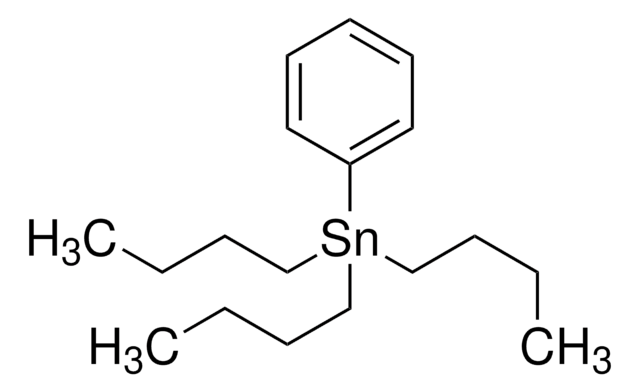About This Item
Recommended Products
vapor density
14.7 (vs air)
Assay
97%
bp
>420 °C (lit.)
mp
224-227 °C (lit.)
SMILES string
c1ccc(cc1)[Sn](c2ccccc2)(c3ccccc3)c4ccccc4
InChI
1S/4C6H5.Sn/c4*1-2-4-6-5-3-1;/h4*1-5H;
InChI key
CRHIAMBJMSSNNM-UHFFFAOYSA-N
Looking for similar products? Visit Product Comparison Guide
Signal Word
Danger
Hazard Statements
Precautionary Statements
Hazard Classifications
Acute Tox. 3 Dermal - Acute Tox. 3 Inhalation - Acute Tox. 3 Oral - Aquatic Acute 1 - Aquatic Chronic 1
Storage Class Code
6.1C - Combustible acute toxic Cat.3 / toxic compounds or compounds which causing chronic effects
WGK
WGK 3
Flash Point(F)
231.8 °F - closed cup
Flash Point(C)
111 °C - closed cup
Certificates of Analysis (COA)
Search for Certificates of Analysis (COA) by entering the products Lot/Batch Number. Lot and Batch Numbers can be found on a product’s label following the words ‘Lot’ or ‘Batch’.
Already Own This Product?
Find documentation for the products that you have recently purchased in the Document Library.
Customers Also Viewed
Our team of scientists has experience in all areas of research including Life Science, Material Science, Chemical Synthesis, Chromatography, Analytical and many others.
Contact Technical Service













